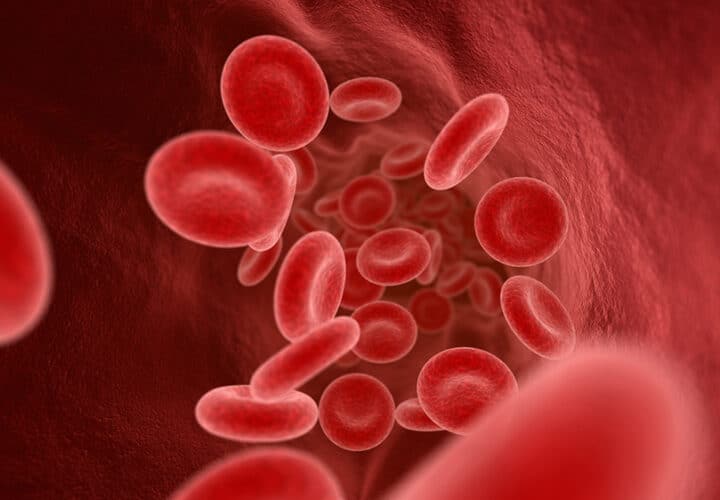Expert Opinion: Who Should Get A Genetic Test for Alzheimer’s Disease?
Direct-to-consumer genetic testing is becoming more common as people opt to understand how their health relates to their DNA. Mapping your genes can sometimes mean opening Pandora’s box and, in turn, unexpected consequences. If you have a parent or close family member with Alzheimer’s, should you get testing for the Alzheimer’s gene? It’s a question we asked Dr. Marwan Sabbagh of the Barrow Neurological Institute, who clarifies who exactly should be getting a genetic test for Alzheimer’s disease.
- Early onset Alzheimer’s genetic variants APP, PS1 and PS2 are very rare
- ApoE4 is the variant associated with being a risk factor for late onset
- Alzheimer’s Expert says genetic testing should only be considered in people who show cognitive decline
Watch the full interview
Being Patient:There’s a lot of information that we can get on Alzheimer’s disease today because we’ve isolated three markers for early onset, as well as some people choose to get screened to see if they have the ApoE4 variant in their genetics. Can you make sense of all of this in terms of where genetic testing is?
Marwan Sabbagh: There are three rare ones (genetic variants,) APP, PS1, PS2, are so rare, I only ever even think about drawing them in people who are very young, 40s and 50s, who are coming in with a progressive dementia. Those people, the ones who have those rare mutations, usually also have very rich family history, generation after generation after generation. If they don’t have a rich family history, I won’t even think about drawing them. Those thankfully represent, I think I see one every five years, one every ten years. It’s not very common.
Being Patient: Is it possible to have early onset Alzheimer’s and not have one of those three variants?
Marwan Sabbagh: Theoretically, yes. I’ve seen two cases that did not have one of those three mutations. One came to autopsy, one is about to come to autopsy, unfortunately.
I drew those autosomal dominant markers and they were negative, but they clearly had a progressive dementia, young onset, that would progress to autopsy. In both cases we got their brains, or one we got the brain and one we’re going to get the brain. We may discover index cases of new mutations.
Being Patient: If you are someone who has been or thinks you may be a candidate for this disease, how important is the genetic component?
Marwan Sabbagh: ApoE genotyping was first described by Dr. Corder and Roses in 1993 in the journal Science. It over time has held up, over hundreds of studies suggest clearly it’s a correct and accurate finding. What has been the controversy in the field is, should we go out and get tested? I think that people are in agreement that in general we would not recommend testing people who do not have symptoms, even if it runs in their family. In general, most people don’t get genotyped. Most physicians, my peers, don’t genotype for people who are having symptomatic dementia or mild cognitive impairment. I do, but I’m not in the majority on that particular aspect.
23 and Me started to test people, disclosing their genetic information without any genetic counseling required. That’s a new change, this is in the last two months. I’m not sure we have thought this through all the way to its logical conclusion and we’ll take some time to figure that out. Do I recommend at this point, would I recommend a person like you to go out and get tested? No.
Being Patient: What if you’re failing all of the cognitive testing?
Marwan Sabbagh: Well then you’re becoming symptomatic, in which case then you should think about it. That’s what these large registries are trying to cull people. Some people are not even aware they’re slipping until they’re really slipping and that’s what they want to do, is flag those people and track them.
Being Patient: What about using a scan as a diagnostic tool? We know there’s a presence of beta-amyloid plaque in brains long before some people show symptoms.
Marwan Sabbagh: The people who are more likely to get worse over time are amyloid PET positive than amyloid PET negative. Like ApoE, it’s a risk factor. Should we recommend it routinely? Probably not. Will we get to a point where we’re recommending something else as a proxy test? I think that we’re clearly headed in that direction. What that proxy test is has not been settled upon.
Being Patient: When you first make a diagnosis, what are some of the lifestyle changes you feel like are essential in order to perhaps prevent the onset of Alzheimer’s disease?
Marwan Sabbagh: Those are separate issues, because if I’m making a diagnosis, that means they’re symptomatic. What I recommend for a symptomatic person is different for what I recommend from, say the adult child of a symptomatic person.
For the asymptomatic people, the people who are the adult child, because they often come in with their adult child, who are asking me, “Oh my gosh, am I next?” I would say to you, “Engage in wellness starting today. Don’t wait until you’re symptomatic.” We know the brain changes start 20 years. Wellness starts today. You have to exercise, you’ve got to eat right, you’ve got to manage your health conditions, you’ve got to do mentally stimulating activities, you’ve got to do it all. You can’t just do one thing.”
To the symptomatic person I say, “Alzheimer’s is a treatable disease, we’re going to do everything we can to stop it. We’ll talk about diet and health as part of the whole treatment spectrum. The data’s not as good in the treatment, using diet to treat Alzheimer’s as it is in the prevention phase.” Then we’ll talk about whether a ketogenic diet might make sense or not.
Being Patient: Treatable disease though, without a cure? I think that’s important to differentiate. The definition of treatable.
Marwan Sabbagh: Alzheimer’s is, in our generation, what diabetes and HIV was a generation ago and cancer was two generations ago. We never cured diabetes. We did not cure people of HIV either. We took all of those from terminal diseases to chronic disease. Alzheimer’s dementia, that will happen in our lifetimes. We will make it from a terminal disease to a chronic disease. The idea of curing it is probably one or two generations away, where you take it out as if it was never there.





My husband was diagnosed with MCI 6 years ago and put on A Rivastigmine patch and Nemenda. 3 yrs ago, the diagnosis was changed to early Alzheimer’s. Both his mother, sister and brother had Alzheimer’s. He is now 80 yrs old and he can hardly remember relatives by name. He has diabetes but no physical ailments. His neurologist took him off all of the Alzheimer’s drugs.
He repeatedly tells us that his hippocampus looks good. What does that indicate?